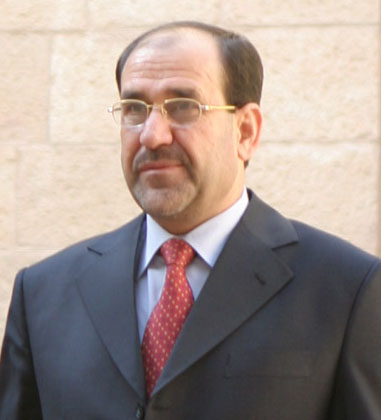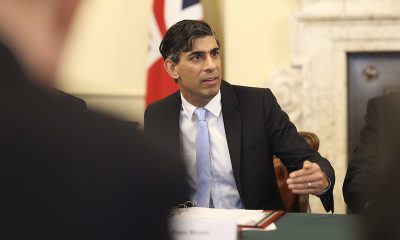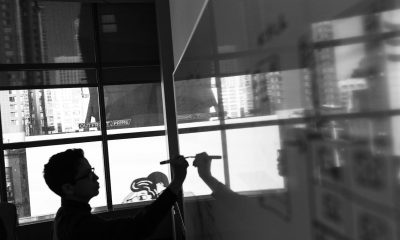Breaking
Iraq’s Al-Maliki steps up struggle to keep his job
BAGHDAD — Iraq’s elite security forces loyal to the country’s embattled prime minister deployed in force in the streets of Baghdad on Monday as Nouri al-Maliki demanded the newly elected president name him to continue in his post and form a new government, a development that could threaten to undermine efforts to fight a growing insurgency by Sunni militants.
Also Monday, senior U.S. officials said the Obama administration, which launched airdrops and airstrikes last week to support Kurdish and Iraqi forces battling militants from the Islamic State group, has begun directly providing weapons to the Kurdish peshmerga forces who have started to make gains against the al-Qaida breakaway group.
In a televised speech after midnight Sunday, al-Maliki, who’s seeking a third term in office, declared he will file a legal complaint against the new president, Fouad Massoum, for committing “a clear constitutional violation.”
He accused Massoum of obstructing his re-election and carrying out “a coup against the constitution and the political process.”
Al-Maliki’s Shiite-dominated bloc won the most parliament seats in April elections and the prime minister sees himself as rightfully keeping the post. He accused Massoum of neglecting to name a prime minister by Sunday’s deadline.
Critics say the Shiite al-Maliki contributed to the crisis by monopolizing power and pursuing a sectarian agenda that alienated the country’s Sunni and Kurdish minorities.
The political deadlock in Baghdad over a new government has raised concerns abroad.
Speaking to reporters in Sydney, U.S. Secretary of State John Kerry said the U.S. stands “absolutely squarely behind President Massoum,” and called for restraint.
“What we urge the people of Iraq to do is to be calm,” Kerry said. “There should be no use force, no introduction of troops or militias into this moment of democracy for Iraq.”
Kerry said a new government “is critical in terms of sustaining the stability and calm in Iraq,” and that “our hope is that Mr. Maliki will not stir those waters.”
The U.S. concerns were echoed by the European Union and the United Nations. EU’s envoy to Iraq, Jana Hybaskova, said the bloc expects “the nomination of a candidate who can gather wide support among all Iraqi communities.”
The U.N. special representative for Iraq, Nickolay Mladenov, said Iraq’s “special forces should refrain from actions that may be seen as interference in matters related to the democratic transfer of political authority.”
The late-night speech was al-Maliki’s first since U.S. forces launched airstrikes and humanitarian airdrops in Iraq last week. A parliament session scheduled for Monday to discuss the nomination of the new prime minister was postponed until Aug. 19.
In a sign of rising tensions, Iraqi special forces loyal to al-Maliki were deployed at Baghdad’s main intersections on Monday, police officials said. Two of the capital’s main streets – popular spots for pro and anti-government rallies – were partially closed as hundreds of al-Maliki’s supporters took to the streets.
“We are with you, al-Maliki,” they shouted, waving posters of the incumbent premier, singing and dancing.
It was not immediately clear when al-Maliki would submit his complaint, presumably in a Baghdad court on Monday.
Despite a heightened security, scattered attacks in and near Baghdad killed at least nine people, officials said.
In the western suburb of Abu Ghraib, a barrage of mortar rounds killed six civilians and wounded 11, a police officer said. In the town of Youssifiyah, 20 kilometers (12 miles) south of Baghdad, militants opened fire on an army check point, killing two soldiers and wounding three, he said.
And a bomb at an outdoor market in the eastern district of Zafaraniyah killed one and wounded seven, officials said. All officials spoke on condition of anonymity because they were not authorized to talk to media.
Despite the political crisis, the U.S. airstrikes have reinvigorated Iraqi Kurdish forces battling the Islamic State in northern and western Iraq. On Sunday, the Kurdish peshmerga fighters retook two towns – Makhmour and al-Gweir, some 28 miles (45 kilometers) from the Kurdish capital of Irbil – from the Sunni militants in what was one of their first victories after weeks of retreating.
Also Sunday, the U.S. launched a fourth round of airstrikes against militant vehicles and mortars firing on Irbil as part of efforts to blunt the militants’ advance and protect American personnel in and around the Kurdish regional capital.
U.S. warplanes and drones have also attacked militants firing on minority Yazidis around Sinjar, which is in the far west of the country near the Syrian border.
The move to directly arm the Kurds underscores the level of U.S. concern about the Islamic State’s gains. The officials wouldn’t say which U.S. agency is providing the arms or what weapons are being sent, but one official said it isn’t the Pentagon. The CIA has historically done similar quiet arming operations. The officials spoke on condition of anonymity because they were not authorized to discuss the operation publicly.
President Barack Obama warned Americans on Saturday that the new campaign to bring security in Iraq requires military and political changes and “is going to be a long-term project.”
Obama said Iraqi security forces need to revamp to effectively mount an offensive, which requires a government in Baghdad that the Iraqi military and people have confidence in. He said Iraq needs a prime minister – an indication suggesting he’s written off the legitimacy of the incumbent, al-Maliki.
The militant advances and the political turmoil has deepened Iraq’s humanitarian crisis, with some 200,000 Iraqis recently joining the 1.5 million people already displaced from violence this year.
British officials estimated Saturday that 50,000 to 150,000 people could be trapped on Sinjar Mountain, where they fled to escape the Islamic extremists, only to become stranded there with few supplies.
Associated Press writers Sinan Salaheddin in Baghdad and Matthew Lee in Sydney contributed to this report.






















